|
On November 3, we celebrate Catholic Education Sunday across the Roman Catholic Diocese of Calgary. It is a day to recognize the gift of Catholic education that is ours to cherish and support, so that it remains vital for today’s students who will become tomorrow’s community leaders.
Our schools are an expression of our faith and a gift to future generations. Catholic education is the permeation of God in everything we do. On the weekend of November 2nd and 3rd, a special collection will occur at each mass. The community is called to support Catholic education in our community and to ensure the present and future needs of our students. The Alberta Bishops’ acknowledge with deep gratitude and embrace with unwavering resolve publicly funded Catholic education. Let us join together in thanking God for the gift of Catholic Education in Alberta. The Novena is intended to be prayed in our classrooms, parishes and homes from Oct. 25 until Catholic Education Sunday on Nov. 2.
0 Comments
Tens of thousands of Roman Catholics will converge on St. Peter’s Square this Sunday, Oct. 13 for the canonization of Blessed Cardinal John Henry Newman. Details of Newman’s life and canonization can be found at newmancanonisation.com. To celebrate Newman’s sainthood, St. John the Evangelist has invited Bishop Emeritus Frederick Henry to give the homily at the 10 am Mass on Sunday, Oct. 13. Weather permitting, Mass will include a procession around the block.
Mass at St. John the Evangelist St. John's Parish priest Fr. Robert Bengry encourages Roman Catholics who do not come from the Anglican tradition to attend services at St. John the Evangelist in Inglewood. “Any and all are certainly invited. Our Mass is a form of the Roman Rite and satisfies one’s obligation to attend Mass. While our chief goal is to make a special welcome to Anglicans who want to become Catholic, we do the same for other Protestants and have a ministry to ‘reverts’ as well; those who might have wandered from the Catholic Faith but who, again, want to come home.” Mass attendees may notice a few differences. “Our Mass, in many ways, is the old Sarum Mass used in England before the Reformation, conducted in Sacral English. There are a few prayers which come from our time as Protestants, most notably: The Prayer of Humble Access. Despite its origin, it is a thoroughly Catholic prayer beloved by so many Anglicans—and now available for all Catholics to pray.” Learn more about Blessed Cardinal John Henry Newman:
Vertical Divider
With climate change getting so much media coverage, it’s easy to see why some Catholics are asking questions about what they can do to support the papal call for Christians to unite in caring for what Pope Francis calls, “our common home.” Other Catholics don’t spend much time thinking about it. They’re too busy planting, weeding and harvesting food, flowers—and faith. This summer, volunteers planted a 3,000-square-foot vegetable garden at the Mount St. Francis Retreat Centre at Cochrane. The potatoes, carrots, squash and swiss chard were put to good use; the food is shared between Feed the Hungry’s (FTH) Sunday dinners at St. Mary’s Cathedral and the Calgary Food Bank. “The food bank really is a ‘bank,” says Linnea Ferguson, program lead for the Calgary Catholic Diocese’s FTH program. “We take from that bank for our Sunday night dinners, so it’s nice to deposit some food there, too.” Although FTH is more closely aligned with social versus environmental causes, the connection between food and life is obvious, notes Ferguson. “By actively participating in the production of local produce, I think Feed the Hungry shows care for our common home and how much we respect the dignity of the people we feed.” Care for Creation Over at St. Joseph’s parish in northwest Calgary, parish council has adopted some care for creation initiatives sparked by the 2015 papal encyclical, Laudato Si: On Care for Our Common Home. This spring, Knights of Columbus planted a courtyard area with plants donated by a long-time parishioner. “It’s really beautiful,” says parish council member Marilou LeGeyt. “We’ve got a variety of flowering plants, including roses, monkshood and black-eyed Susan. Next year, the Knights will divide those plants and sell the extras as a fundraiser.” After all the planning and planting were done, the project yielded three wins for the parish. The garden is a fundraiser, a beautiful space by the Church entrance and its gives parishioners an opportunity to take an ecological piece of their church community home to their own gardens. In late September, the courtyard hosted a Blessing of the Animals. The event attracted dogs, fish, cats and turtles! In line with Laudato Si and its focus on dialogue, St. Joseph’s parish is also exploring the addition of a vegetable garden on the church property. The concept is meant to nourish St. Joe’s place in the wider community, says LeGeyt. At St. Peter’s parish, a team of volunteer gardeners is taking responsibility for the gardens built as part of a major reconstruction project. Led by parishioner Sylvie Fung, who’s also active with the Society of St. Vincent de Paul, the grounds include several well-kept flower pots, ground-level plots and a new grotto. The latter includes an outdoor rosary. To help the growing number of faithful who visit the space to pray, Fung tucks several rosaries and prayer cards into two solar lamps at the garden entrance. “People take the rosaries, so I’m always looking for more,” says Fung. Members of her garden team take turns watering the pots and checking to make sure the freshly-landscaped shrubs and perennials are doing well. But the job can get a little prickly. While the space between the church and alley has been beautifully landscaped, these beds include a number of Canada Thistle, an invasive (not Canadian!) weed species known for its thorns and deep roots, both of which complicate eradication. Fung encourages her fellow gardeners to weed these “beds of thorns, beds of suffering” as an act of faithful sacrifice. “It’s the perfect job to recite the Chaplet of Divine Mercy,” says Fung with a smile. Written by Joy Gregory for Faithfully
Four years ago my mother had a stroke. Now she has vascular dementia. It is not exactly the same as Alzheimer’s. There is a tendency to lump all dementia together as Alzheimer’s, but there are actually several kinds of memory loss. Vascular dementia distinguishes itself because its progress is neither predictable nor consistent. Cognitive changes occur in steps. There are plateaus where the person’s memory holds steady followed by sudden changes. During each plateau I accustom myself until a new step occurs, inviting a new grief. Most difficult for me has been the loss of abilities that, to my mind, most clearly identify my mother. For example, my mother can no longer remember how to bake the German cakes, which for decades have marked the seasons of our family life – Schwartzwälderkirchtorte on my birthday, Sachertorte on my father’s. These cakes symbolized her love for us. What happens to my mother’s love now that the symbol of that love is gone? Loss of memory can feel like the loss of a person, a death before death. In fact, the social worker assigned to help me calls it ‘ambiguous grief’ because the losses occur repeatedly without finality. Recently, I attended a liturgical congress for which the theme was anamnesis or liturgical remembering. My earlier reflections on memory had to do with the memorization of liturgical texts and how the things we remember become part of us and identify us with certain cultures and communities. I found myself wondering: if my mother no longer remembers the things that identified her, who and whose is she? One of the papers at the conference, given by Rev. Prof. Liam Tracey (OSM), was about worship in the age of dementia. Tracey referred to the practical theology of John Swinton, who proposes that we are not what we remember rather, God remembers us. Although it may be satisfying to use memory to construct our own identity and to connect with others, Tracey explained that God’s memory is not a neurological act; we are not as we think. One of the things experts say is that when you visit people with dementia you have to enter into their reality. While I tend to identify my mother in relation to how I remember her, a spirituality of dementia invites me to consider instead how God remembers. When we recall God’s saving deeds in the Eucharistic Prayer of the Mass, we fulfil Christ’s command to “do this in memory of me.” This anamnesis is distinct from non-liturgical recollection in that it actually makes the past events of salvation present again. It is not our individual memory of what God did for us in Jesus Christ, but God’s memory given to us in the liturgy that continues to save us. Although I grieve the changes in my mother’s cognition, her being is not ultimately determined by what she can remember. Losing memory does not have to mean a loss of identity because, for Christians, it is God who remembers. Written by Dr. Simone Brosig, Liturgy Consultant / Director, Diocese of Calgary
“At Bowmont I learnt how to live a structured life and how to conduct my work with love,” says Joe Kaup, 23, a married engineer working in Calgary. Kaup is one of the many young men who lived in Bowmont, a small residence for male students close to the University of Calgary and SAIT. It is run by Opus Dei members; the residents need not be Catholic. Its director, Evan Francis, a plastics-recycling engineer, says it is much more than a residence: it tries to form young men who can transform society. To that end, it tries to be a home away from home, foster good study habits, reach out to the most needy. Joe, from Edmonton, did an internship in Calgary while in the third year of Engineering at the University of Alberta, and stayed at Bowmont eight months. He enjoyed the feeling of companionship and support for his faith. “I really liked that after supper we would visit the Blessed Sacrament in the small chapel, and have a get-together afterwards where I could get to know everyone a little better through lively discussion.” Carter Snethun, 20, was living in the residence the school year, 2016-2017, studying Engineering. “There is a big focus on the development of the whole person. You are encouraged to do things to the best of your abilities. There are lots of opportunities for learning.” Joe credits the housekeeping staff. “The amount of time one saves by not having to do laundry, cook, or do the majority of the cleaning cannot be overstated. It then gives one far more time that can be directed towards studies or the pursuit of other skills. I was able to develop my skill at playing the guitar.” Carter concurs. Two Calgary-area brothers have experienced Opus Dei residences in other cities. Fr. Nathan Siray, the pastor of Our Lady of the Rockies (Canmore), frequented Riverview Centre in Montreal in 2002-2003, while studying history at McGill University. “My roommate invited me to join him for morning Mass and weekly activities at Riverview, walking distance from campus. I felt very welcomed. I most appreciated the time that the priest and the director of Riverview took to offer spiritual direction. I also enjoyed the variety of cultural activities that took place, from lectures on various topics to informally discussing our favourite musical artists. It was a great mix of faith formation, cultural enrichment and opportunities to grow in my life of Christian outreach.” Did this help him become a priest? “The greatest help was to discern what a vocation apart from the priesthood would look like, as I saw the vocations of celibate members. I saw how well they lived as disciples of Christ in the world and showed how fruitful this vocation is. As I pondered this beautiful calling, it became more apparent to me that I was called to the ordained priesthood.” His younger brother Justin lived at Glenwood in 2013-2014, in Vancouver, while studying at UBC. Now he works in Calgary as a high school teacher, is married and has a one-year-old boy. “My stay at Glenwood helped give me an idea of what a structured Catholic lifestyle could be. No matter how busy things get, you can always get organized, manage the chaos of life, and find the best balance of faith, work and free time. It was truly a happy place to be: there were always smiles and stories floating around.” Written by Fernando Mignone
Many are internally displaced or flee to neighbouring countries such as Lebanon and Jordan. Some, Syrians in particular, have settled in parts of Canada, including Calgary, but for those who stay or have gone back, their homes are often destroyed and require a lot of rebuilding. “Sometimes people don’t feel safe moving back to their town,” said Gabriel. “There have been cases of kidnapping, harrassment, discrimination. There have been times that they’ve been killed because of their faith.” Due to difficulties crossing check points, Palestinian Christians aren’t always granted a pass to attend Easter Mass in Jerusalem. “The locals can’t experience Easter there, but the tourists have no problem,” said Gabriel. She organizes pilgrimages with CNEWA to the Holy Land for those wanting both a spiritual experience and a snapshot into the life of local Christians. The next one is being planned for 2020. “The Christians are always very grateful when we come and visit them. They feel supported,” said Gabriel. In August, Gabriel spoke at the national Catholic Women’s League (CWL) Convention held in Calgary because CNEWA is one of the charities CWL supports at the national level. Two of the projects CWL funds are a centre in Jerusalem that provides tutoring for at-risk youth and a centre near Bethlehem providing healthcare for women and their babies. National CWL President Anne-Marie Gorman went on a pilgrimage to the Holy Land and met some of the local Christians, including entrepreneurs who left to seek education in the United States, but returned to open a brewery. “Things seem to be so unstable, so I’m thinking if they have enough faith to go home and settle back in the Palestinian occupied territory, it behooves us to support them as best we can,” said Gorman. “Our past spiritual adviser Bishop Martin Currie said the Holy Land is in danger of becoming like Disneyland, just a tourist site that people go see what it used to be like. But when I was there, it was all about these people being living stones. These are the people that haven’t left.” St. Bonaventure parishioner Kathleen Kufeldt is one of many Calgarian donors who financially support CNEWA. For several years she has organized a raffle at her parish for CNEWA during the annual CWL fundraiser. “I think we are so blessed here to practice our faith. My heart goes out to the Christians in the Middle East,” said Kufeldt. “I feel it must be one of Jesus’s wounds that the area where He was born and grew up is so difficult for His followers.” Written by Sara Francis for Faithfully
Makrina Morozowski was born with cerebral palsy, but she says this disability taught her many valuable life lessons, including how to overcome the obstacles she faces on a daily basis. When she was young, a general rule in the household was, “If Makrina falls down, she gets up on her own”. For someone who uses crutches regularly, and a wheelchair when she wants to get somewhere faster, that rule may seem harsh, but Makrina says it taught her many valuable life lessons. Makrina, 27 years old, is an active member of St. Peter’s Parish in Calgary, and has been a member of St. Peter’s Catholic Women’s League since 2013. She was one of the youngest members when she joined at age 21 following the footsteps of her mother and grandmother, who are also members –three generations in one council. St. Peter’s CWL, as well as members throughout the Alberta Mackenzie province of the Catholic Women’s League sponsored Makrina when she was accepted as a Youth Ambassador of the Canada C3 Expedition when Canada celebrated its 150 anniversary in 2017. She spent 10 days on board a ship that travelled from coast to coast to coast, and afterwards, she shared her experiences in classrooms, and with the Catholic Women’s League at both the Calgary Diocesan and Alberta Mackenzie Provincial Conventions. A former and current ambassador for Easter Seals Alberta, Makrina has become a leader by influencing others to help them overcome their challenges. She was awarded the John Kittler Volunteerism Award from Easter Seals Alberta. She’s an avid hiker and a bronze medalist with the Wheelchair Basketball Team Alberta, at the Canada Winter Games in 2015, In Prince George, BC. She recently completed a 1.5 kilometer swim in a fundraiser for the Easter Seals Alberta. Makrina has a Masters of Counselling, and works in social services in Calgary, supporting people in distress. Makrina was recently accepted into the Catholic Women’s Leadership Foundation, which inspires Catholic women to be transformed into influential leaders where they live, work, and volunteer. She is looking forward to joining others from across the country in the process of transforming and influencing leadership while infusing spirituality into the learning process. Makrina likes to follow the guidelines of ACE, an acronym used by Power To Be, an outdoor based organization supporting those with disabilities in the outdoors; Accept all abilities, Challenge yourself, and Encourage others. Written by Jan Myhre
I didn’t want to go. My house was a mess, my laundry piled high and my children unruly when it was time to leave. I wanted a bath and a book and an early bedtime, and I got into my mini-van thinking that the last thing I wanted to hear was someone telling me how I could have it all. But as I sat in the room at St. Michael Catholic Community with fifty other women it dawned on me that I may not have felt like attending, but maybe what Lisa Canning had to say was the truth I needed to hear. Canning, the author of the new book The Possibility Mom: How to be a Great Mom and Pursue Your Dreams at the Same Time, is expecting her eighth child with husband Josh. In her native-Toronto, she has enjoyed a successful career in interior design and has been featured on numerous design-themed shows and channels. Working as a speaker, podcaster and YouTuber, she seeks to inspire her followers to live their best life. Canning spoke in the relatable way a good friend would as she led a workshop-style presentation, “She’s the girl-next-door, but she’s got it together,” said attendee Leslie Poirier. On being invited to share, Piorier told her “Lisa, you are electric,” and many nodded in agreement. Looking around, I could see the heads nodding as Canning shared what her first five hectic years as a mom were like, having four children and working as an interior designer at the same time. “Many times I questioned my existence, exhausted by mom-guilt and desperate for a solution to an overstretched life,” she writes in her book. Talking to us that evening she called herself a “petri-dish,” saying that after what she called her, “mini-van meltdown,” she just started experimenting with ways to make it all possible, and above all, trusting God. “God just wanted me to trust Him,” she said, citing many times through the years that He had blessed her family. After being asked many times, “how do you do it?” she has come up with a guideline for all moms to use to go from constantly feeling overwhelmed to peace. Step one of her plan to open our lives to change is to “Identify the limiting beliefs holding you back from your best life.” “You can tell what your limiting beliefs are by paying attention to the times you say ‘I just can’t do that because…’” she said, then invited us to share a few of our own with someone next to us. The room buzzing with enthusiasm, Piorier and the mom next to her struck up what might be a life-changing conversation for them both. “I’m Leslie and this is Ann,” Poirier said, introducing new friend Ann Hoff, “and we were just sharing that we’ve come to a point where there’s a step to be taken, but our limiting belief is basically that we’re just chicken.” As heads nodded, and voices murmured agreements with Poirier and Hoff, other women also shared that they too struggled with things like consistency and multitasking. All of this culminated to the point that Canning was trying to make: that life is difficult for all of us, but we sometimes tell a story to ourselves that makes it seem impossible to do the things we want. For the rest of our evening, Canning spent her time showing us that there are, as her book aptly puts it, possibilities for everyone.
“Fast forward to your funeral,” Canning said midway through the evening, leading us to ask ourselves what kind of legacy we wanted to leave behind and to take a moment to think what our own obituary might say. She had stumbled across this exercise in another book, and when she’d written her own obituary years before, she told us that she had realized that “none of these things are true right now” then took steps to make a change. Hoff and Poirier told me they wanted to make some changes for themselves. “Because we said we were chickens,” Hoff said of the exercise, “I want to be remembered not as that, but as someone who went out on a limb and did things.” She nodded when I suggested she wanted to be described as as brave and courageous.
I was born in Glace Bay, Cape Breton, N.S. May 25, 1936. At the age of 14, I moved to Montreal to live with my sister and brother-in-law.
After my school and college years, my first employment was with United Amusement Corporation where I was an assistant manager in the Van Horne Theatre. During my teen years in Montreal, I experienced a collapsed lung and was taken to the Royal Victoria Hospital. It was during my convalescence, I would visit other patients. And after my discharge, I continued to visit patients. During my time in Montreal, I would visit St. Joseph’s Oratory. My young heart was touched when I saw the prosthetics, canes and wheelchairs that were left behind by people who had been healed by their belief in God and trust in the power of prayer. I traveled to Calgary in 1958 (population 447,000). When I was settled, I started visiting the Children’s Hospital, the General Hospital and the Colonel Belcher Hospital. I played pool, cards, and other board games with the patients. I also visited the Holy Cross Hospital where my training in spiritual care began. The order of Grey Nuns instructed me on how to visit with patients. In the early 60s we were entrusted by the diocese to distribute Holy Communion. I was employed in sales and marketing until my retirement in 2000. In 1980, my wife Marie and I moved to Canyon Meadows and attended St. Gerard’s. In 1983, we moved to Midnapore and attended St. Patrick’s Parish. Our Pastor Fr. Joe Rigby asked me to start up a Pastoral visiting team advising me of a new program that was approved by Bishop Paul O’Byrne. Five of us parishioners signed up for the new pastoral visitation program lead by Brother Leon Jensen and Mrs Halina White. Today, we have more than 40 active Pastoral Care volunteers. Upon completion of the course, I was assigned to the Rockyview General Hospital. I was honored to be assigned to visit Bishop Paul during his two years at the Beverly Nursing Home up to the last half hour before his passing. June 20, 2013, during the Calgary Flood I was going into the Shawnessy Library when a number of our hospital patient transport vans and ambulances started to arrive. One of the hospital representatives recognized me and asked if I had my hospital ID. I retrieved it from my car and was sequestered for the next few days moving residents who were arriving from nursing homes in the flooded areas. We set up tables; served food, took residents for walks and for rides, watched movies in the library and prepared their beds. After the residents were relocated, I went to High River. One of my duties was to pass out bottled water and supplies with the Red Cross. This year, 2019, is my 61st year of visiting the sick in our diocese. That’s 32 years at the Rockyview Hospital and five years at the new South Health Campus Hospital. After giving my notice to Alberta Health, I am still continuing my pastoral visits in our community and I look forward to many more years of service in the Pastoral Care ministry. Your Brother in Christ, Michael McDougall |
Author
Catholic Pastoral Centre Staff and Guest Writers Archives
July 2024
Categories
All
|
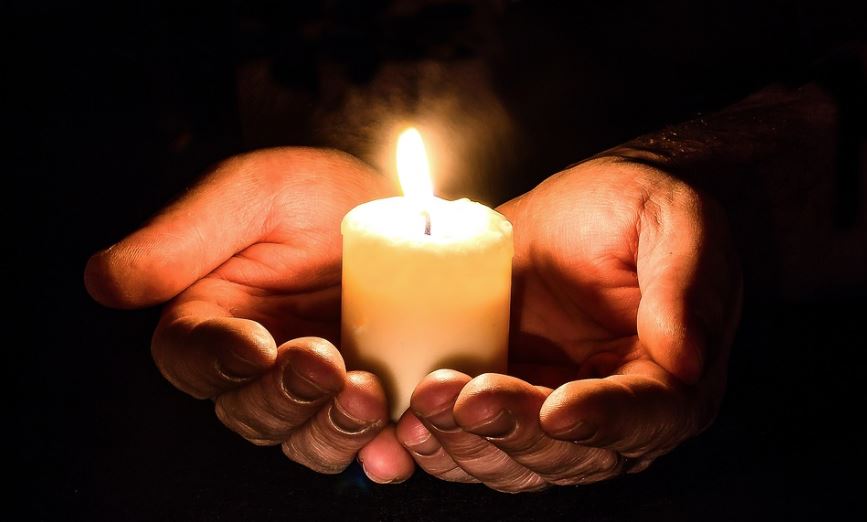
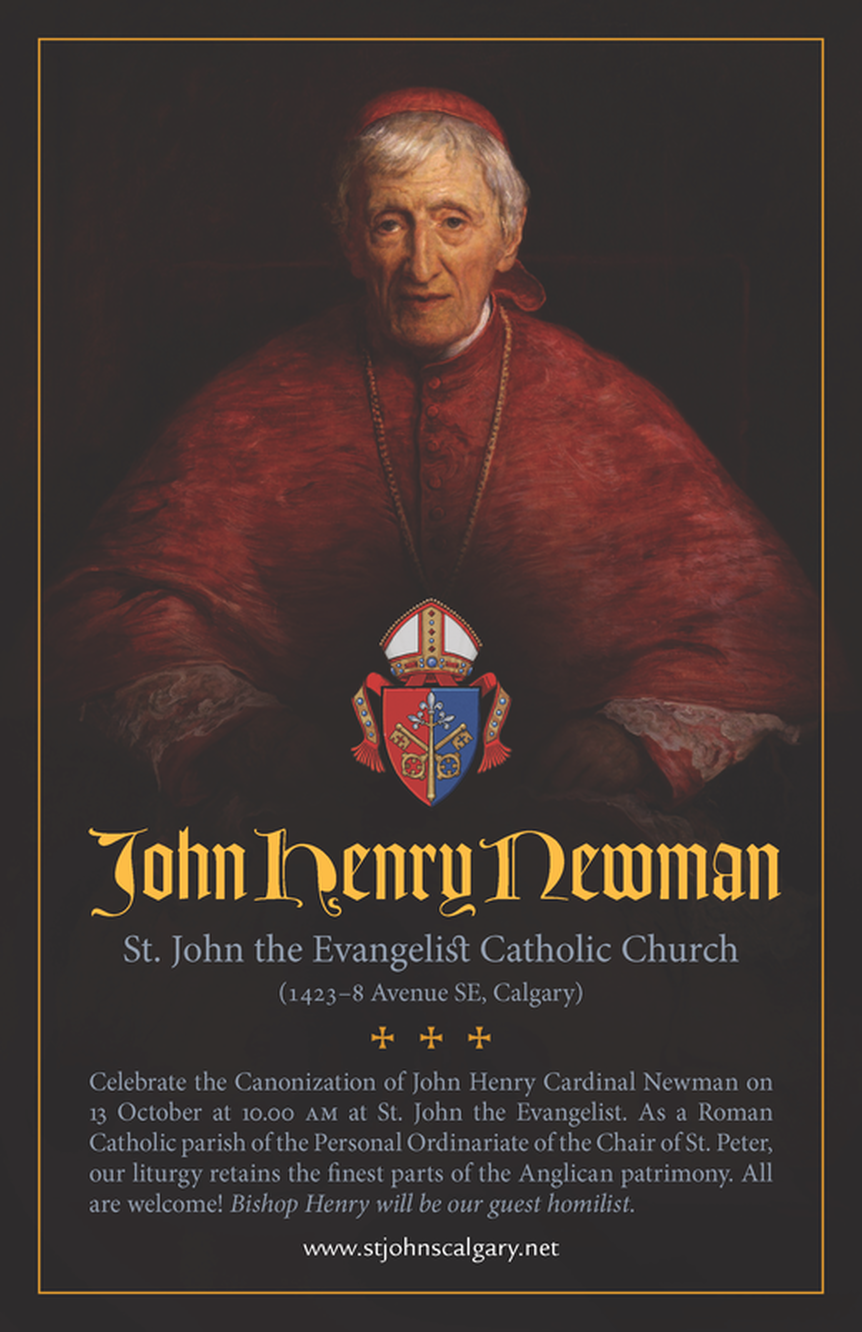
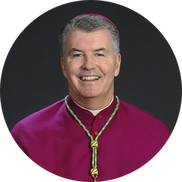
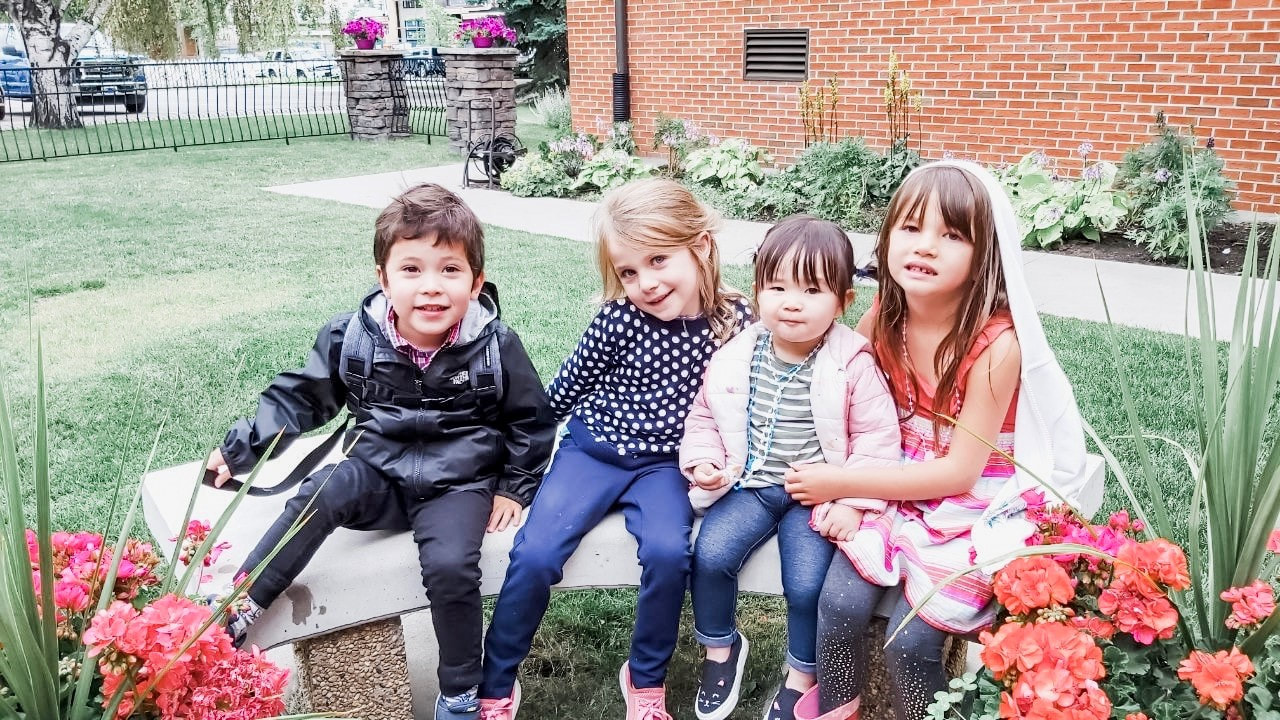
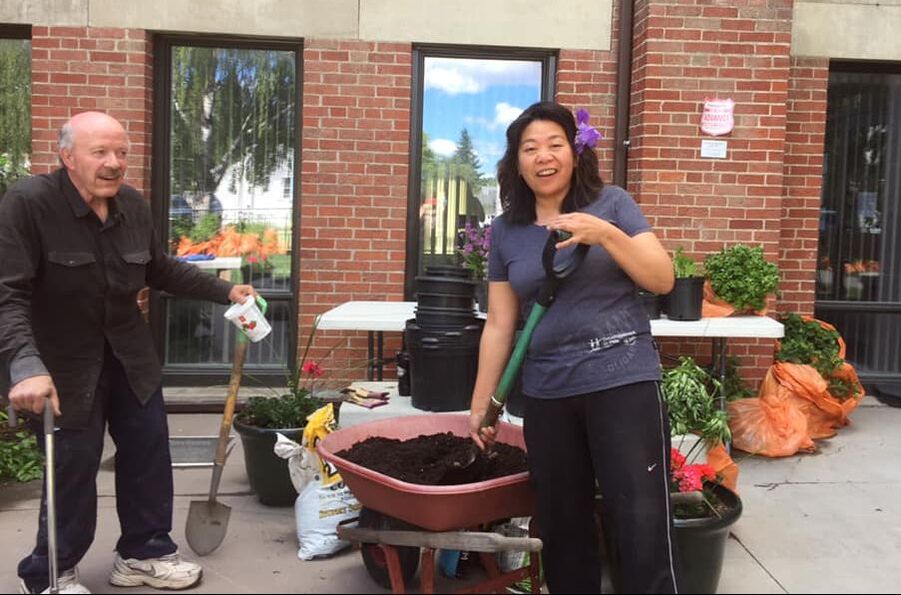
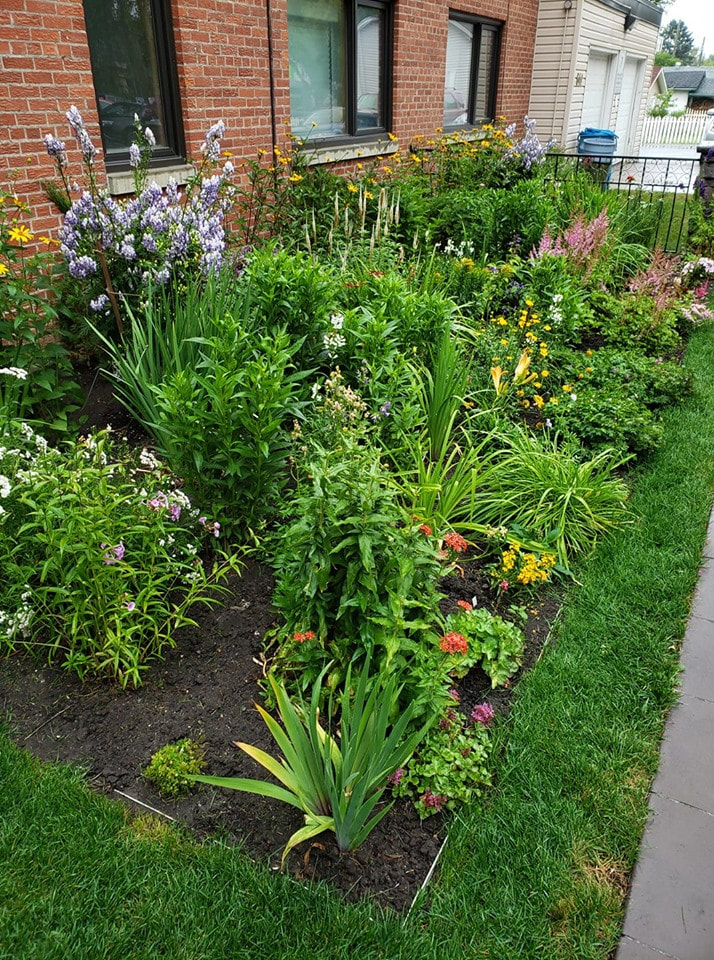
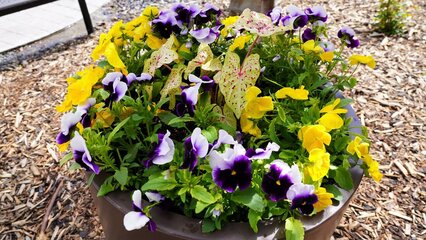

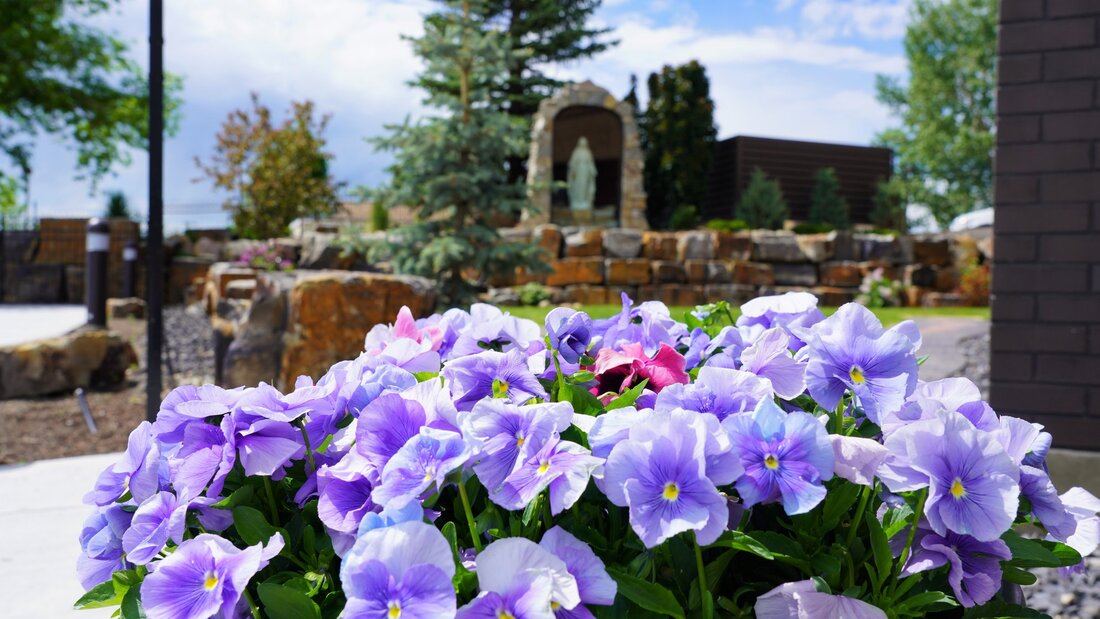

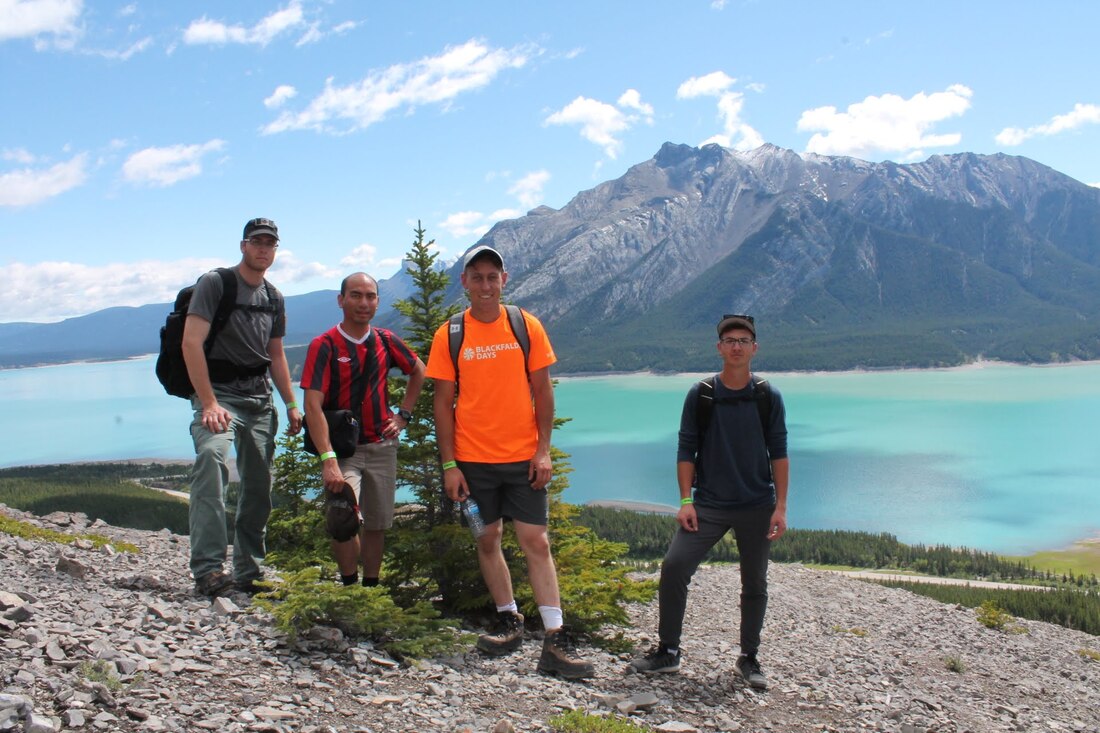
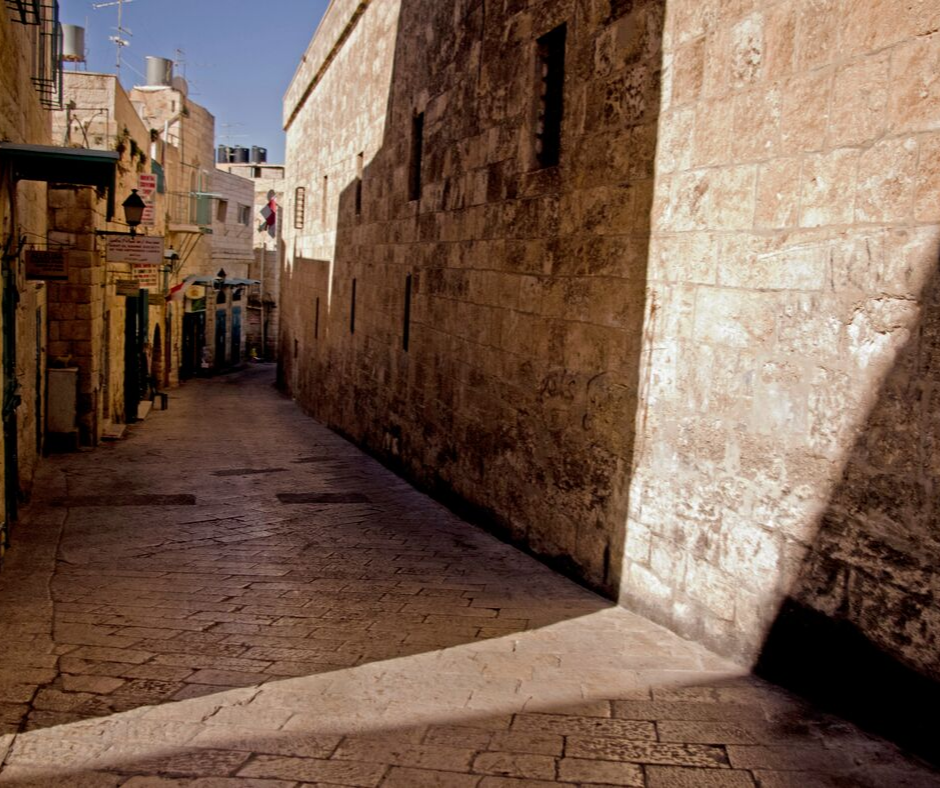
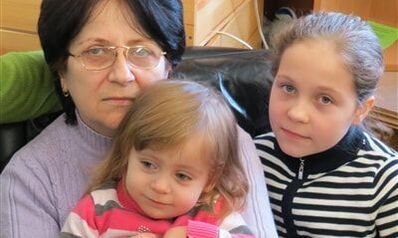
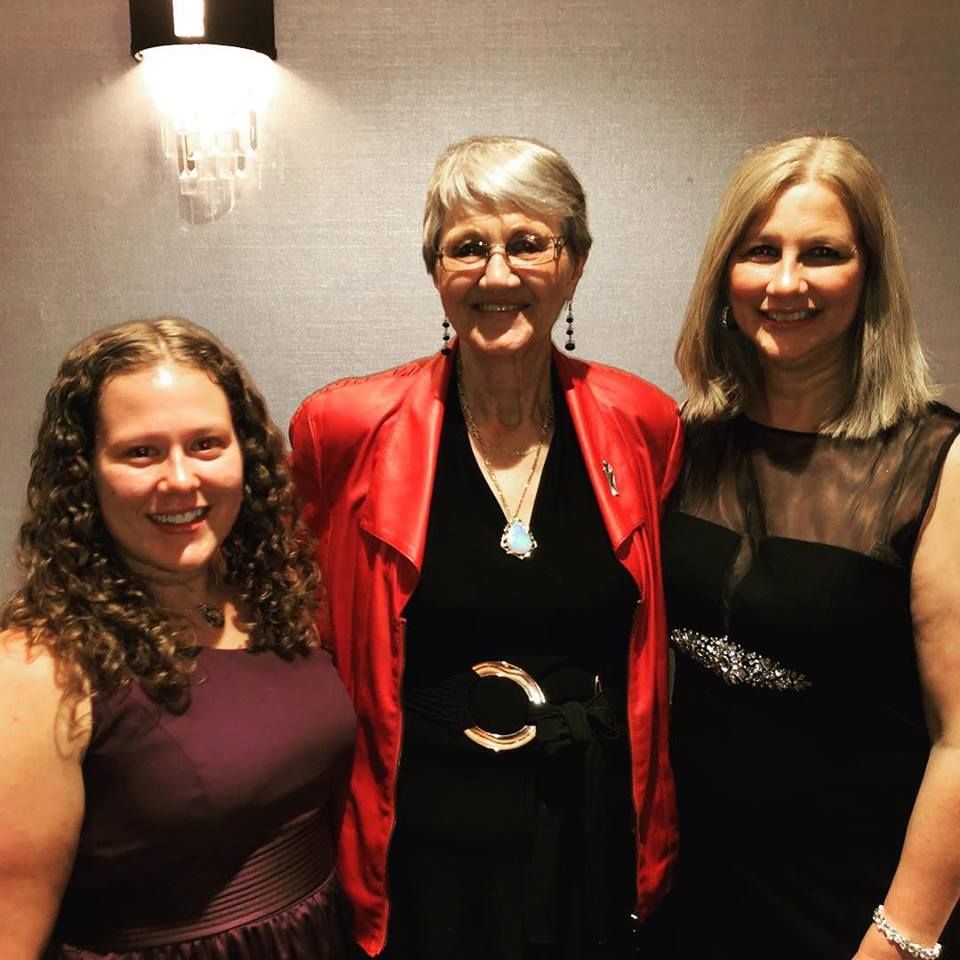
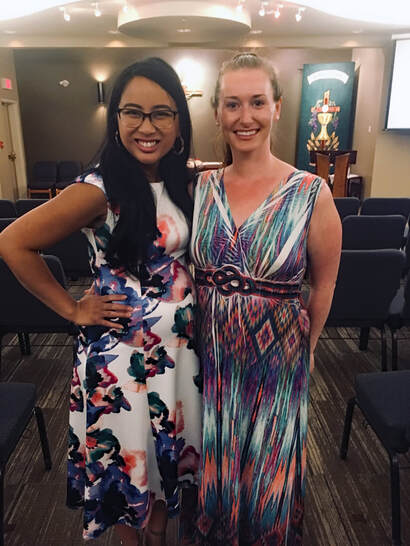

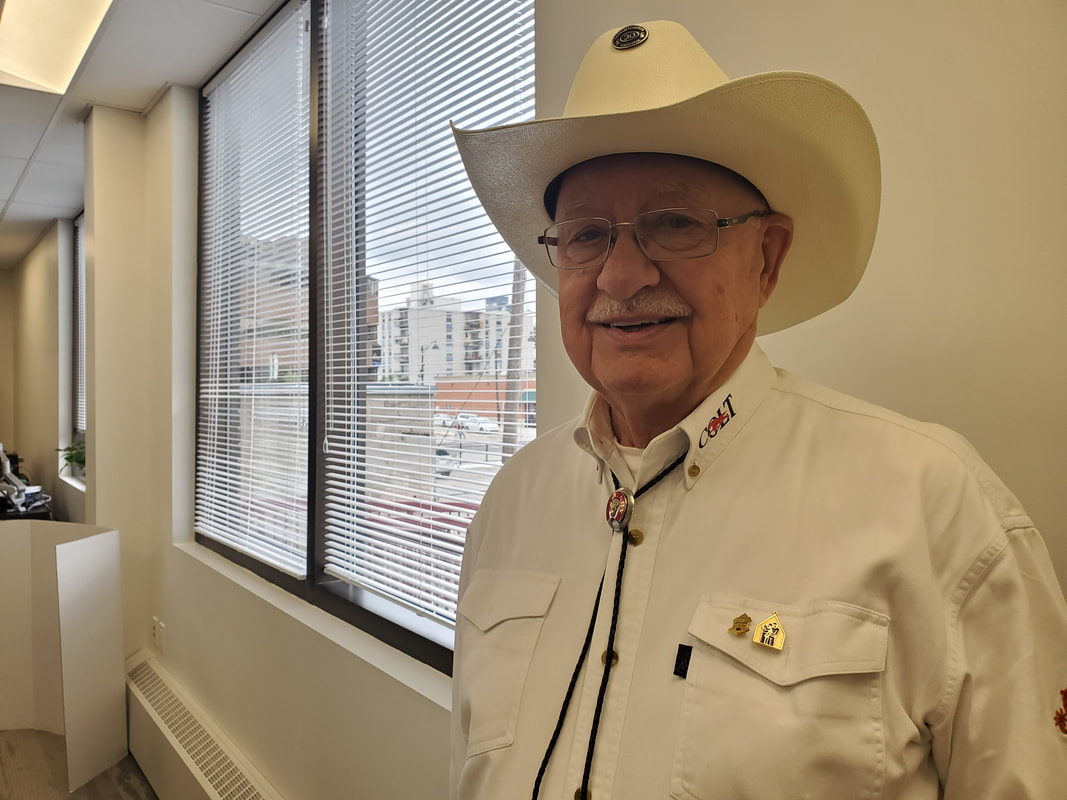
 RSS Feed
RSS Feed